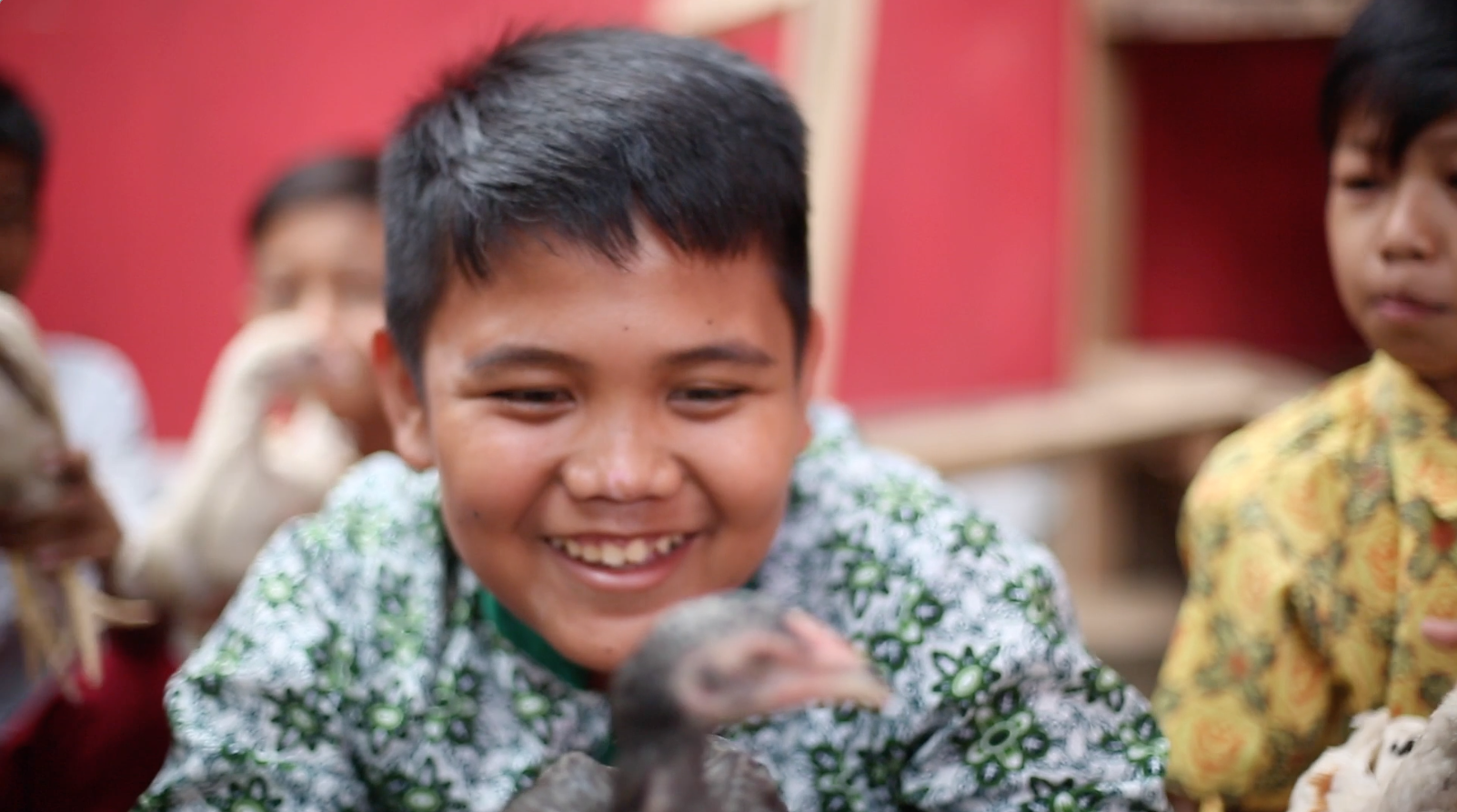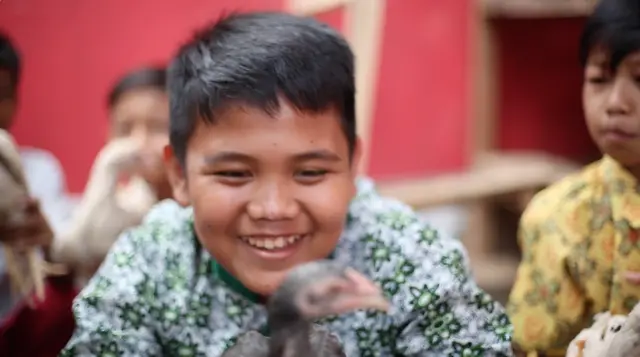
Children as young as 10 years old are required to raise chickens and care for plants. /CGTN Photo
It's a misty morning in Bandung, West Java and Ujang is getting his son, Adyaksha, ready for school. One of the most important items he cannot forget is Adyaksha's pet chicken. As part of a new initiative, Adyaksha and his classmates are required to raise chickens and care for plants.
It was the brainchild of the city's Mayor, Oded Danial. Children as young as 10 years old must take part in the program called "Chickenization." At first the policy sparked few controversies because it aimed to steer children away from the excessive use of gadgets. However, most of the schools that have adopted the program believe its benefits go beyond that.
As head of Bandung's Food and Agriculture Department, Gin Gin Ginanjar is helping to the lead the initiative.
"The main goal is to build and nurture the children's character, it's not just about gadgets. What children need now is not just to be smart inside the classrooms, but to have good character. One of the ways to achieve this is by having them raise a chicken since it is still a baby," said Gin Gin.

Gin Gin Ginanjar says the program will help build children's characters aside from limiting gadget consumption. /CGTN Photo
As a parent, Ujang is happy that his son is preoccupied with activities outside of the classroom. He appreciates how the program is already teaching his child the importance of being responsible.
"My son is being taught how to care for the chicken at all stages. We learned that temperature is important and it changes as the chickens grow. We also have to pay attention to their fur, their eyes, their beaks. It teaches my son to pay attention and monitor his chicken," said Ujang.

As a parent, Ujang is happy to help his son understand the importance of responsibilities at a young age. /CGTN Photo
Adyaksha seems to enjoy his busy schedule. For the female students in the same school, caring for plants will be their main focus, where each student is required to plant chilies from seed to fruit.
Seto Mulyadi is known for his unconventional teaching styles. His school, Homeschooling Kak Seto, only runs three times a week and three hours per day. He says those hours help children enjoy learning, become more creative and encourage productivity.
"Children need a good balance of both worlds. That helps to nurture their character and creativity. Personally, I think the Chickenization program should be highlighted along with other programs that encourage students to go back to the outdoors and play Indonesia’s traditional games." said Seto.
The Chickenization program will also help to spark the interest of farming in young innovative, a dying tradition as more village residents move to big cities to find employment.
 简体中文
简体中文

